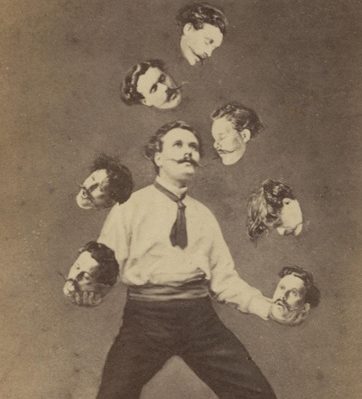Forgetting is, to some extent, necessary. Letting go and moving on makes life manageable. In a 2012 Five Books interview, Joshua Foer described Solomon Shereshevsky (or “S”), the subject of neuropsychologist Aleksandr Luria’s The Mind of Mnemonist, this way:
S seemed to remember too well. He was ineffectual as a journalist and ultimately couldn’t make a living as anything other than a stage performer — a memory freak. I think that points to something profound. Forgetting is an important part of learning, it teaches us to abstract. Because S remembered too much, he couldn’t process what he witnessed, and as a result he couldn’t make his way in the world.•
Many new technologies, however, want us to remember.
It can be small things like Facebook enabling us to attend a high-school reunion (if a virtual one) every day, or those writ large like “telepathy startups” that aim to use implants to make thoughts uploadable and downloadable, so that everything can be recorded and recalled. Everything.
There will be a time (probably this century) when “visiting the cemetery” will come to mean conversing with a VR version of late loved ones. Maybe some will be repelled by this development and employ companies that routinely “wash” memories, as in Eternal Sunshine of the Spotless Mind. Perhaps these are some of the exciting new fields that will emerge to provide jobs for those squeezed from manufacturing.
In a Maya Kosoff Vanity Fair piece, Siri cofounder Tom Gruber believes “personal memory enhancement” inevitable. He acknowledges there will be danger. “It’s absolutely essential that this be kept very secure,” he says, which almost certainly won’t happen. We will be hacked.
An excerpt:
Speaking onstage at the TED 2017 conference in Vancouver, Canada, Gruber illustrated his vision for a world in which technology records and remembers every event in our lives—the names of every person we meet, all the places we have been, and all of our life events. “I believe A.I. will make personal memory enhancement a reality. I think it’s inevitable,” he said onstage this week, arguing that smart computers could be used to reinforce existing human capacity for memory.
Gruber’s not the first tech entrepreneur to suggest that some kind of brain-computer interface is the next frontier for Silicon Valley: Elon Musk’s new “telepathy” start-up, Neuralink, is developing a “neural lace” technology that would involve “implanting tiny brain electrodes that may one day upload and download thoughts.” Facebook has also hinted that it is working on similar sorts of technology that could help people with disabilities. (“What if you could type directly from your brain?” Regina Dugan, who leads Facebook’s secretive hardware development initiative, mused at the company’s developers conference last week.)
Still, there’s a long way to go when it comes to such technologies: the surgical procedures involved are dangerous, and the privacy implications are incredibly serious. “We get to choose what is and is not recalled and retained,” Gruber said onstage. “It’s absolutely essential that this be kept very secure.”•
Tags: Maya Kosoff, Tom Gruber

